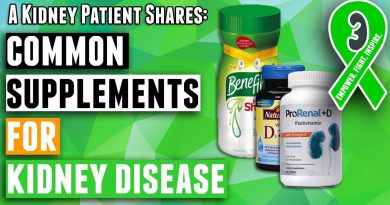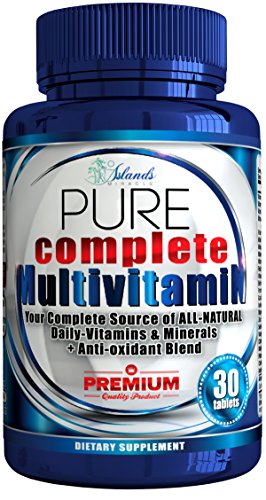What you need to know about multivitamins
A multivitamin is a pill containing several different vitamins and minerals to supplement diet
What you should know:
•Multivitamins can’t replace the benefits of a healthy diet
•Side effects can occur if you consume too much of one vitamin
•Talk to your doctor or pharmacist when considering a multivitamin
Related Videos:
•All Vitamins and Supplements, http://www.youtube.com/user/CVSPharmacyVideos#grid/user/B9C848EAFA3F989B
Related Health Articles:
•Vitamin D
According to an Associated Press report, Dr. Michael Holick, a Boston University vitamin D specialist, thinks that up to 30 percent of U.S. teens may be deficient in vitamin D. To be safe, the American Academy of Pediatrics recommends multivitamin… http://bit.ly/9Gw37n
•Fiber
Fiber is a substance found in plants. Dietary fiber — the kind you eat — is found in fruits, vegetables, and grains. It is an important part of a healthy diet… http://bit.ly/dxsc9x
•Fish Oil
Fish oil contains omega-3 fatty acids, one of the two main classes of essential fatty acids. (Omega-6 fatty acids are the other main type.) Essential fatty acids are special fats that the body needs for optimum health… http://bit.ly/c6tAIM
•Pre-Natal Vitamins
In general, most prenatal supplements contain more folic acid, iron, and calcium than you’ll find in a standard adult multivitamin. Cooking food in cast iron will increase the amount of iron in your food considerably, and eating iron-rich foods … http://bit.ly/b8teK5
Related Products:
The following are products sold by CVS/pharmacy that may be of interest to you:
CVS Spectravite Advanced Formula Tablets $8.49 http://bit.ly/dzDnvp
Transcript
Hi, I’m Erika Shephard and I’m a CVS pharmacist. A multivitamin is a pill containing several different vitamins and minerals intended to supplement the diet with the necessary nutrients needed to maintain health.
Although taking a multivitamin may be easier than eating enough fruits and vegetables, even the most comprehensive vitamin pill can’t provide all the benefits of a healthy diet. But even if you have a healthy diet, there are some nutrients that can’t always be satisfied with food alone, such as vitamin D and folic acid. Because of this, it’s usually a good idea to take a multivitamin along with your healthy diet so you can be sure that you’re getting all of the recommended doses of vitamins.
There are of course potential side effects if you get too much of one vitamin. You should avoid any supplement that contains high levels of trace minerals like manganese and molybdenum. Be aware of high doses of vitamin A and beta-carotene, and be sure not to get too much zinc or more than 1,000 of vitamin C daily.
There are instances when you may need another supplement in addition to your multivitamin, to be sure you’re getting enough daily nutrients. Calcium is crucial to keeping your bones healthy, especially in older women, and most multivitamins don’t contain more than 130 milligrams. Because of this, you may need to take a calcium supplement.
Make sure you closely examine the multivitamin you’re considering, and talk to your doctor or pharmacist about what it may contain. Your CVS pharmacist will always be happy to answer any questions.
Source: CVS Caremark Health Resources





